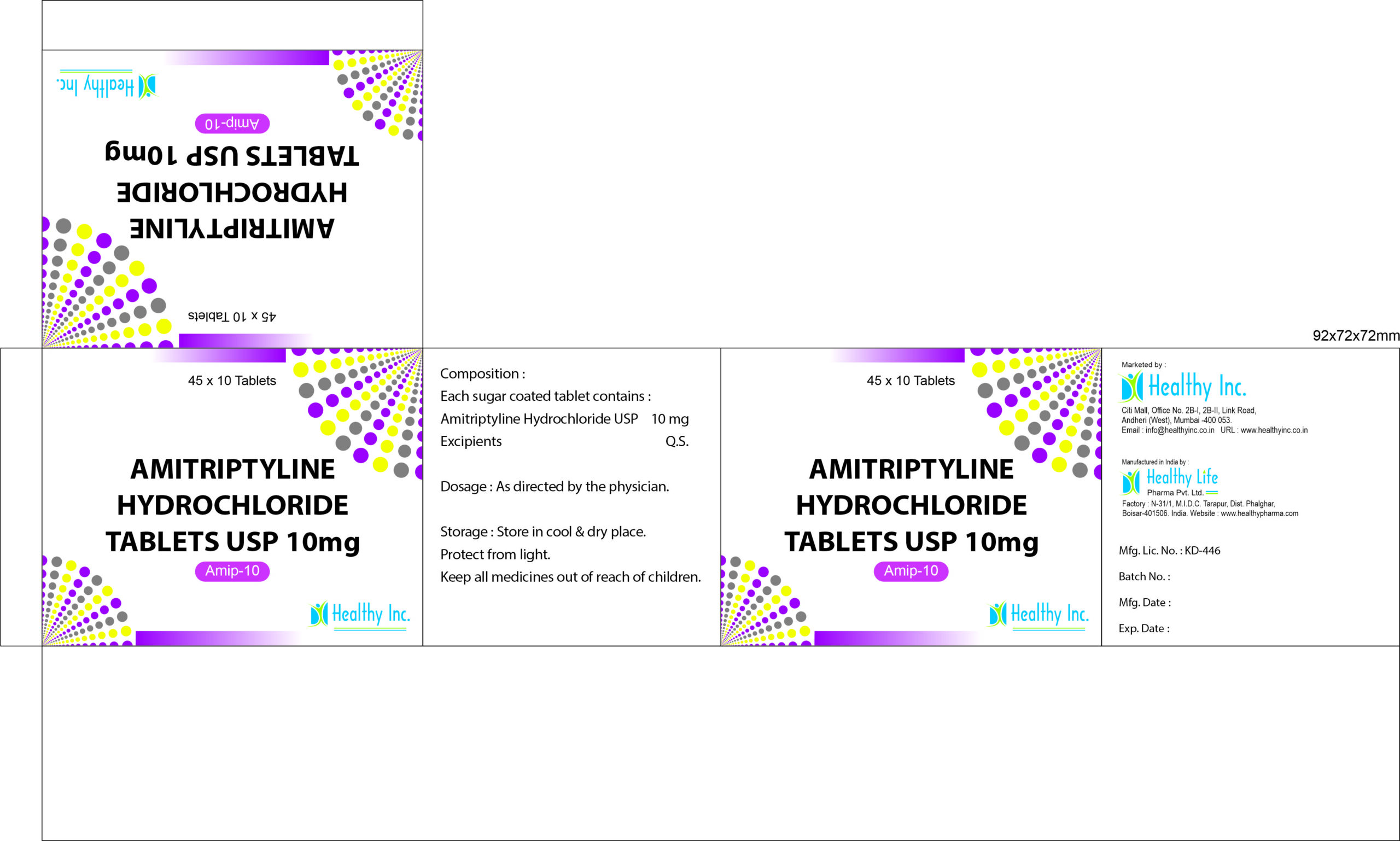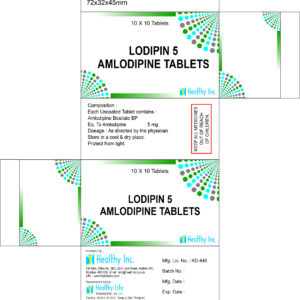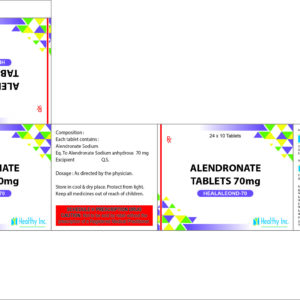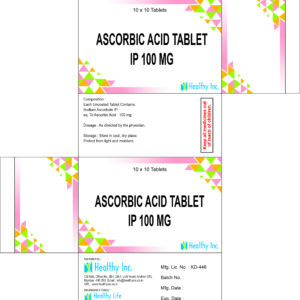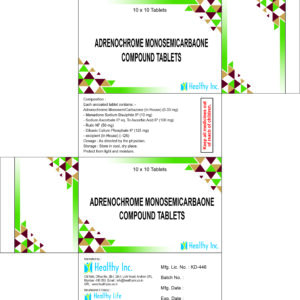Description
Amitriptyline Tablets (10mg / 25mg / 50mg)
Manufactured by Healthy Life Pharma Pvt. Ltd. | Exported by Healthy Inc
1. Product Introduction Healthy Life Pharma Pvt. Ltd. is a specialized manufacturer of Amitriptyline Tablets in India. This Tricyclic Antidepressant (TCA) is a versatile medication used globally for Major Depressive Disorder, Neuropathic Pain, and Migraine Prophylaxis. We produce high-purity, film-coated tablets that ensure precise dosage delivery. Our facility adheres to strict WHO-GMP standards. Healthy Inc manages our global exports and CNS tenders.
2. Product Specifications | Parameter | Specification | | :— | :— | | Product Name | Amitriptyline Tablets | | Generic Name | Amitriptyline Hydrochloride USP / BP / IP | | Strength | 10mg / 25mg / 50mg / 75mg | | Dosage Form | Film Coated Tablet | | Standard | USP / BP / IP Compliant | | Therapeutic Class | Tricyclic Antidepressant (TCA) | | Shelf Life | 36 Months | | Packaging | 10×10 Blister / 1000s Bulk Jar |
3. Manufacturing Amitriptyline Tablets We divide our operations to ensure specialized focus.
The Manufacturer: Healthy Life Pharma Pvt. Ltd. First, Healthy Life Pharma handles manufacturing. We operate a WHO-GMP certified plant in Mumbai. Amitriptyline Hydrochloride has an extremely bitter taste and can cause a temporary numbing sensation (anesthesia) on the tongue if it dissolves in the mouth. To prevent this, we apply a robust Polymer Film Coating. This effectively masks the taste and ensures the tablet is easy to swallow intact. We also use advanced blending to ensure Content Uniformity, which is critical for low-dose (10mg) titration.
The Exporter: Healthy Inc Second, Healthy Inc manages international trade. This division handles logistics for Amitriptyline Tablets. We supply neurology clinics and pain management centers globally. We are experienced in handling the regulatory requirements for psychotropic medications in various regions.
4. Quality Assurance We test every batch rigorously.
Dissolution: We test how the tablet releases the drug. Consistent release is vital for maintaining steady blood levels to manage chronic pain.
Assay: We confirm the potency using HPLC methods. Precise dosing is essential as TCAs have a narrow therapeutic index.
Friability: We ensure the coating is durable enough to withstand shipping without chipping.
5. Why Use Amitriptyline Tablets? This drug works by rebalancing chemicals in the brain.
Mechanism: It inhibits the reuptake of Serotonin and Norepinephrine in the brain. It also has significant anticholinergic and sedative effects.
Effect: It elevates mood, improves sleep quality, and alters the way nerves communicate pain signals.
Key Indications:
Depression: Treatment of Major Depressive Disorder (especially where sedation is required).
Neuropathic Pain: First-line treatment for diabetic neuropathy and post-herpetic neuralgia.
Migraine Prophylaxis: Prevention of chronic headaches.
Insomnia: Short-term management of sleep disorders (off-label).
6. Export and Regulatory Support We provide complete documentation for registration.
Dossier: We offer CTD and ACTD formats.
Certificates: We supply the Free Sale Certificate (FSC) and COPP.
Logistics: We ship via FOB Mumbai or CIF.
7. Frequently Asked Questions
Q: Who manufactures Amitriptyline Tablets? A: Healthy Life Pharma Pvt. Ltd. manufactures them in India.
Q: Is the 10mg strength available? A: Yes, the 10mg is our most popular strength for pain management and migraine prevention.
Q: Are these coated? A: Yes, all our Amitriptyline tablets are film-coated to prevent the bitter taste and tongue numbness.
CLINICAL PHARMACOLOGY & SAFETY INFORMATION (For Registered Medical Practitioners & Patient Reference)
8. Dosage and Administration
Depression: Initially 25mg to 50mg at bedtime, increased gradually.
Neuropathic Pain: Low dose, starting at 10mg at bedtime.
Administration: Swallow whole with water. Do not chew (to avoid numbing the mouth).
Timing: Best taken at bedtime due to its sedative effects.
9. Side Effects and Precautions
Anticholinergic Effects: Dry mouth, blurred vision, constipation, and urinary retention are common.
Cardiovascular: Can cause orthostatic hypotension (dizziness when standing up) and arrhythmias. Caution in heart disease patients.
Suicidality: Antidepressants may increase the risk of suicidal thoughts in young adults during the initial treatment phase.
10. Storage Instructions
Store below 25°C in a dry place.
Protect from light.
Keep out of reach of children.




